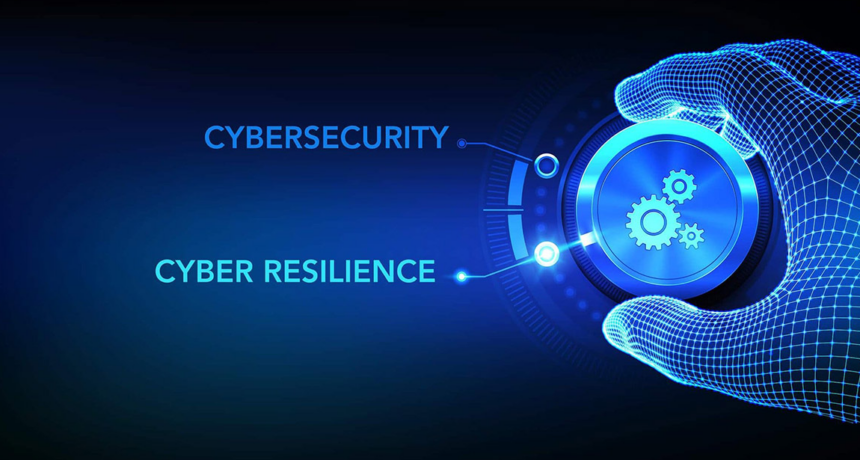The financial sector is increasingly vulnerable to cyber risks in the era of digital transformation, which significantly jeopardizes macro-financial stability. The significance of cyber incidents, particularly in light of the COVID-19 pandemic that commenced in 2020, is underscored by the International Monetary Fund (IMF). The crucial importance of strengthening cybersecurity frameworks and enhancing cyber resilience within the financial sector.
The IMF emphasizes the potential danger that serious cyber incidents provide to the interdependence of finance and technology. These incidents can lead to the interruption of essential financial services, a decline in public trust, and the initiation of widespread consequences. Despite the absence of systemic disruptions resulting from cyber attacks, the data reveals a worrisome increase in the probability of companies experiencing severe direct losses, perhaps exceeding $2.5 billion.
Given the report’s claim that indirect losses arising from cyber-attacks often surpass the recorded direct losses by a wide margin. The occurrence of cyber incidents is significantly influenced by the accurate recognition of digitalization and geopolitical tensions as key risk factors. Financial institutions face an expanded array of potential cyber dangers as a result of their acceptance of digital transformation and exploitation of innovative technology. Moreover, the escalating geopolitical tensions and orchestrated cyber actions by nations worsen the problem.
The relationship between exposure and interconnectedness in the financial sector. Approximately 20% of all cyber incidents specifically target financial institutions. The aforementioned caution highlights the notable vulnerability of the sector to cyber dangers. The vulnerability is further exacerbated by the concentration and limited substitutability of essential financial services, such as custody banking and payment networks. The potential consequences of a cyber attack impacting these services are of a catastrophic nature, as they have the capacity to induce market disruptions and undermine public trust.
Furthermore, the research adeptly highlights the inherent risk that emerges as a result of the financial industry’s reliance on extensively utilized third-party information technology suppliers. The presence of interconnectedness increases the likelihood of concurrent interruptions and cascading consequences, hence amplifying the potential ramifications of a cyber event across the financial system. The interconnection between financial institutions and their technological partners necessitates the adoption of a coordinated strategy to cybersecurity.
According to the IMF’s Financial Sustainability Report 2024, it is said that a notable cyber event possesses the capacity to undermine trust in the financial system, hence potentially triggering market downturns or instances of bank runs. While there have not been any significant bank runs caused by cyber-attacks, empirical research suggests that smaller U.S. banks may face moderate but long-lasting withdrawals of deposits following such instances. The importance of taking proactive steps to maintain public confidence in the financial system and the risk of cyber incidents eroding it.
An important contribution is in the identification of gaps in cybersecurity policy frameworks, particularly in emerging markets and developing countries .The insufficiency of cybersecurity policies and regulatory frameworks in these regions, hence underscoring the pressing need for international cooperation to enhance cyber resilience. The fundamental components of a robust cybersecurity framework encompass the formulation of robust national cybersecurity strategies, the creation of appropriate regulatory and supervisory structures, the fostering of a skilled cybersecurity workforce, and the facilitation of information-sharing agreements at both national and global levels.
The strengthening of reporting for cyber incidents holds significant relevance. Ensuring efficient risk monitoring necessitates the supply of accurate and timely incident reports. This will enable policymakers and administrators to assess the dynamic nature of the threat landscape and develop targeted strategies for mitigation. Moreover, it is commendable to suggest that board members assume accountability for the administration of cybersecurity risks and the advancement of a risk-tolerant atmosphere, cyber hygiene protocols, and cyber education. The establishment of a robust cybersecurity stance for financial institutions necessitates the active involvement and oversight of the board.
The implementation of reaction and recovery procedures, along with the establishment of effective response protocols and crisis management frameworks by national authorities, are crucial steps in enhancing cyber resilience. Financial institutions must adopt and authenticate these guidelines. The implementation of precautionary measures and the establishment of well-defined incident response plans are crucial to minimize the impact of cyber incidents and ensure the continuous delivery of essential financial services.
The acknowledgment of the challenges and nuances inherent in the financial sector is of utmost importance in the establishment of robust cybersecurity protocols. Striking a balance between regulatory oversight and fostering innovation is a difficult task since overly strict laws might hinder the incorporation of emerging technology that can enhance cybersecurity capabilities. Moreover, given the global extent of cyber threats, it is crucial to emphasize the importance of international cooperation and harmonization of cybersecurity procedures and standards.
The effective mitigation of cyber threats necessitates the promotion of cross-border coordination among financial institutions, technology suppliers, national regulators, and relevant stakeholders. In light of future developments, the ever-evolving landscape of cyber threats and the rapid advancement of technology will require continuous innovation and adaptation in cybersecurity strategies. Maintaining a state of perpetual alert, actively monitoring emergent risks, and fostering a culture that prioritizes ongoing enhancement and cyber resilience is imperative for policymakers and industry stakeholders.
In conclusion, the financial sector may enhance its ability to manage the dynamic cyber threat landscape and safeguard macro-financial stability by fostering collaboration, allocating resources to cybersecurity capabilities, and promoting a culture of cyber resilience.
(Dr. Samriti Mahajan is Associate Professor, Head Department of School of Commerce & Management Lingaya’s Vidyapeeth, Faridabad and Dr. Firdous Ahmad Malik is Assistant Professor of Economics, Department of Management. University of People, Pasadena, California, United States. Email: [email protected])








